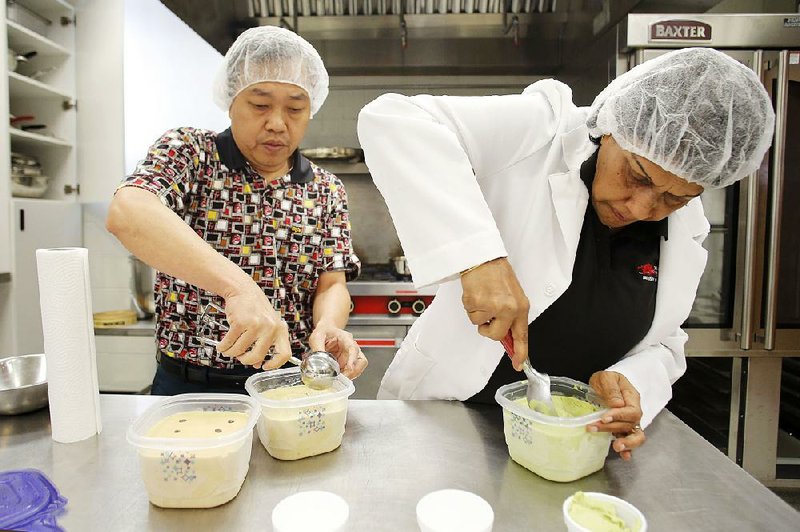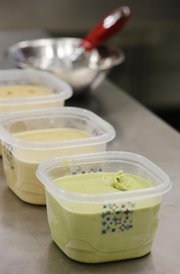FAYETTEVILLE — Navam Hettiarachchy’s bright green spinach-vanilla frozen dessert hasn’t hit store shelves yet, but the University of Arkansas is pushing to get the portfolio of products made from state-grown ingredients in front of consumers.
Meant to mimic ice cream, Hettiarachchy said the protein-rich soybean-based dessert will help provide a healthier alternative to calorie-heavy ice cream. She is looking for commercial vendors to help market the frozen dessert.
“We’re hoping to attract support that will allow us to develop other flavors popular with consumers,” she said. “We also want to develop a unique trendy blend that combines spicy hotness and tart sweetness.”
So far Hettiarachchy and her team of scientists at the University of Arkansas department of food science have developed the spinachvanilla flavor along with a pistachio and mocha version. Hettiarachchy said the spinach-vanilla flavor has been the most popular in taste tests and competitions.
About 1.53 billion gallons of ice cream and frozen desserts were produced in the United States in 2011, according to the U.S. Department of Agriculture. Ice cream sales generated total revenue of $10 billion in 2010, and take-home ice cream sales represented about 68 percent of the market.
Ice cream is usually perceived as unhealthy, Hettiarachchy said. A serving size of conventional vanilla ice cream has at least 145 calories. Hettiarachchy’s spinach vanilla contains 117 calories, and only 27.5 of those are from fat.
Jeremy Ross, a soybean expert at the University of Arkansas agricultural extension service, said the majority of soybeans grown in the state are used for animal feed. Farmers also produce the soybeans for their oil, which can be used for biodiesel, ink and petroleum-based products. A large amount of the soybean products produced in Arkansas is exported to Asian countries.
Ross said additional uses for soybeans could raise the value of the crop for farmers in the state.
“We are always looking for other hidden uses for soybeans,” he said.
Hettiarachchy has been working on the soybean ice cream product for the past two years after receiving a grant from the Arkansas Soybean Promotion Board. The recipe is patented and Hettiarachchy will hold it for 17 years.
Hettiarachchy said most of her work centers on finding ways to get children to eat fruits and vegetables.
“We are trying to see how we can sneak them into their food,” she said.
Hettiarachchy is also trying to develop a new kind of hot sauce and crackers with dried fruits and vegetables in them.
Her idea is to introduce these foods into primary school menus throughout the country. As a protein chemist, she said she uses hard science to develop new food products and recipes.
“All these projects are science-based,” she said. “It’s not just cookery.”

